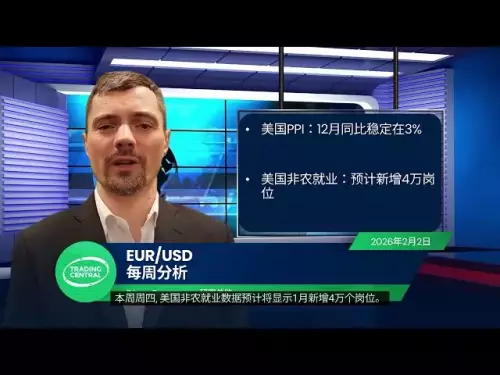 |
|
 |
|
 |
|
 |
|
 |
|
 |
|
 |
|
 |
|
 |
|
 |
|
 |
|
 |
|
 |
|
 |
|
 |
|

As the year 2024 came to a close, the narrative surrounding artificial intelligence (AI) reached a fever pitch. Both users and companies alike expressed a lack of complete trust in the technology.
Despite the significant investments made by startups and multinational companies in expanding AI to domains such as finances, health, and various other aspects of daily life, a substantial deficit in trust in AI persists. This deficit poses one of the most pressing barriers to widespread adoption.
Enter decentralized and privacy-preserving technologies, which are being rapidly recognized as promising solutions for providing verifiability, transparency, and enhanced data protection without hindering AI's growth.
The pervasive AI trust deficit
AI emerged as the second most popular category among cryptocurrency investors in early 2024, capturing over 16% of investor interest.
Startups and multinational companies poured considerable resources into expanding the technology to domains such as finances, health, and every other aspect of life.
For instance, the emerging DeFi x AI (DeFAI) sector witnessed the launch of more than 7,000 projects, which collectively reached a peak market capitalization of $7 billion early in the year before the market downturn. DeFAI showcased the transformative potential of AI to enhance decentralized finance (DeFi) with natural language commands, enabling users to perform complex multi-step operations and conduct sophisticated market research.
However, innovation alone failed to address AI's core vulnerabilities: hallucinations, manipulation, and privacy concerns.
In November, a user managed to deceive an AI agent on Base into sending $47,000 despite being programmed never to do so. While this scenario was part of a game, it raised real concerns about whether AI agents can be trusted with autonomy over financial operations.
Audits, bug bounties, and red teams helped to mitigate the risk of prompt injection, logic flaws, or unauthorized data use. However, according to KPMG in 2023, 61% of people still expressed hesitation to trust AI, and even industry professionals shared that concern.
A Forrester survey cited in Harvard Business Review found that 25% of analysts named trust as AI's biggest obstacle.
That skepticism remains strong. A poll conducted at The Wall Street Journal's CIO Network Summit found that 61% of America's top IT leaders are still experimenting with AI agents. The rest were still experimenting or avoiding them altogether, citing lack of reliability, cybersecurity risks, and data privacy as their main concerns.
Industries like healthcare are particularly sensitive to these risks. Sharing electronic health records (EHR) with LLMs to improve health outcomes holds great promise but also carries legal and ethical risks without airtight privacy protections.
For example, the healthcare industry is suffering adversely from data privacy breaches. This problem compounds when hospitals share EHR data to train AI algorithms without protecting patient privacy.
Centralized platforms also face challenges in reconciling user privacy with dataoperability. In a recent report by the Center for Data Innovation, researchers highlighted the need for a decentralized approach to dataoperability.
Decentralized, privacy-preserving infrastructure
"All the world is made of faith, and trust, and pixie dust," wrote J.M. Barrie in Peter Pan. Trust isn't just a nice to have in AI — it's foundational.
Economists at Moody's Analytic estimate that AI could add $15.7 trillion to the global economy by 2030. But that projected boon may never materialize without it.
Enter decentralized cryptographic systems like zero-knowledge succinct non-interactive arguments of knowledge (ZK-SNARKs). These technologies offer a new path: allowing users to verify AI decisions without revealing personal data or the model's inner workings.
This opens the door to a new generation of trustworthy and transparent AI systems.
By applying privacy-preserving cryptography to machine learning infrastructure, AI can be auditable, trustworthy, and privacy-respecting, especially in sectors like finance and healthcare.
Recent: Blockchain's next big breakthroughs: What to watch
ZK-SNARKs rely on advanced cryptographic proof systems that let one party prove something is true without revealing how. For AI, this enables models to be verified for correctness without disclosing their training data, input values, or proprietary logic.
Imagine a decentralized AI lending agent. Instead of reviewing full financial records, it checks encrypted credit score proofs to make autonomous loan decisions without accessing sensitive data. This protects both user privacy and institutional risk.
ZK technology also addresses the black-box nature of LLMs. By using dynamic proofs, it's possible to verify AI outputs while shielding both data integrity and model architecture.
That's a win for users and companies — one no longer fears data misuse, while the other safeguards its IP.
Toward decentralized AI
As we enter this new phase of AI, better models alone aren't enough.
Users demand transparency; enterprises need resilience; regulators expect accountability.
Decentralized, verifiable cryptography delivers all three.
Technologies like Z
免责声明:info@kdj.com
所提供的信息并非交易建议。根据本文提供的信息进行的任何投资,kdj.com不承担任何责任。加密货币具有高波动性,强烈建议您深入研究后,谨慎投资!
如您认为本网站上使用的内容侵犯了您的版权,请立即联系我们(info@kdj.com),我们将及时删除。
-

-

-

- 比特币的大跌:从顶峰希望到现在的暴跌
- 2026-02-02 16:52:14
- 比特币面临市场急剧下滑,导致价格大幅低于近期峰值,并引发投资者在宏观经济动荡中保持谨慎。
-

- 硬币识别应用程序、硬币收藏家和免费工具:钱币学的数字革命
- 2026-02-02 16:45:23
- 硬币识别应用程序正在改变硬币收集,为爱好者提供免费工具来识别和评估他们的发现,将技术与传统爱好融为一体。
-

-

-

- 随着市场波动中多头整合,以太坊有望上涨
- 2026-02-02 13:49:19
- 以太坊市场展现了希望与现实之间的一场令人着迷的拉锯战。随着多头盘整,潜在反弹的舞台已经准备就绪,但波动仍然是游戏的主题。
-

- ETH 转账引发恐慌性抛售,在重大加密货币重组中消灭了交易者
- 2026-02-02 12:37:18
- 大量 ETH 转移到币安的同时,恰逢一位知名交易员的清算,引发了整个加密市场的恐慌性抛售和数十亿美元的清算。
-































































